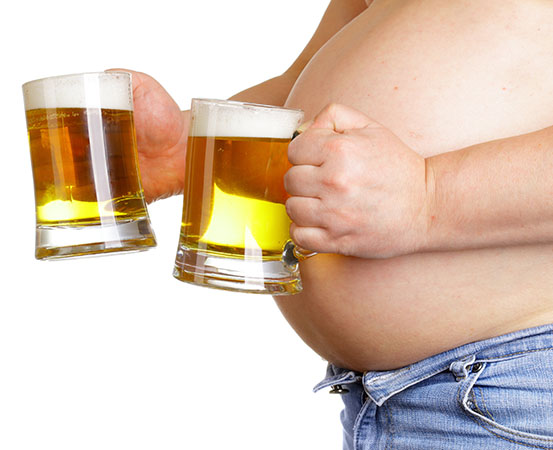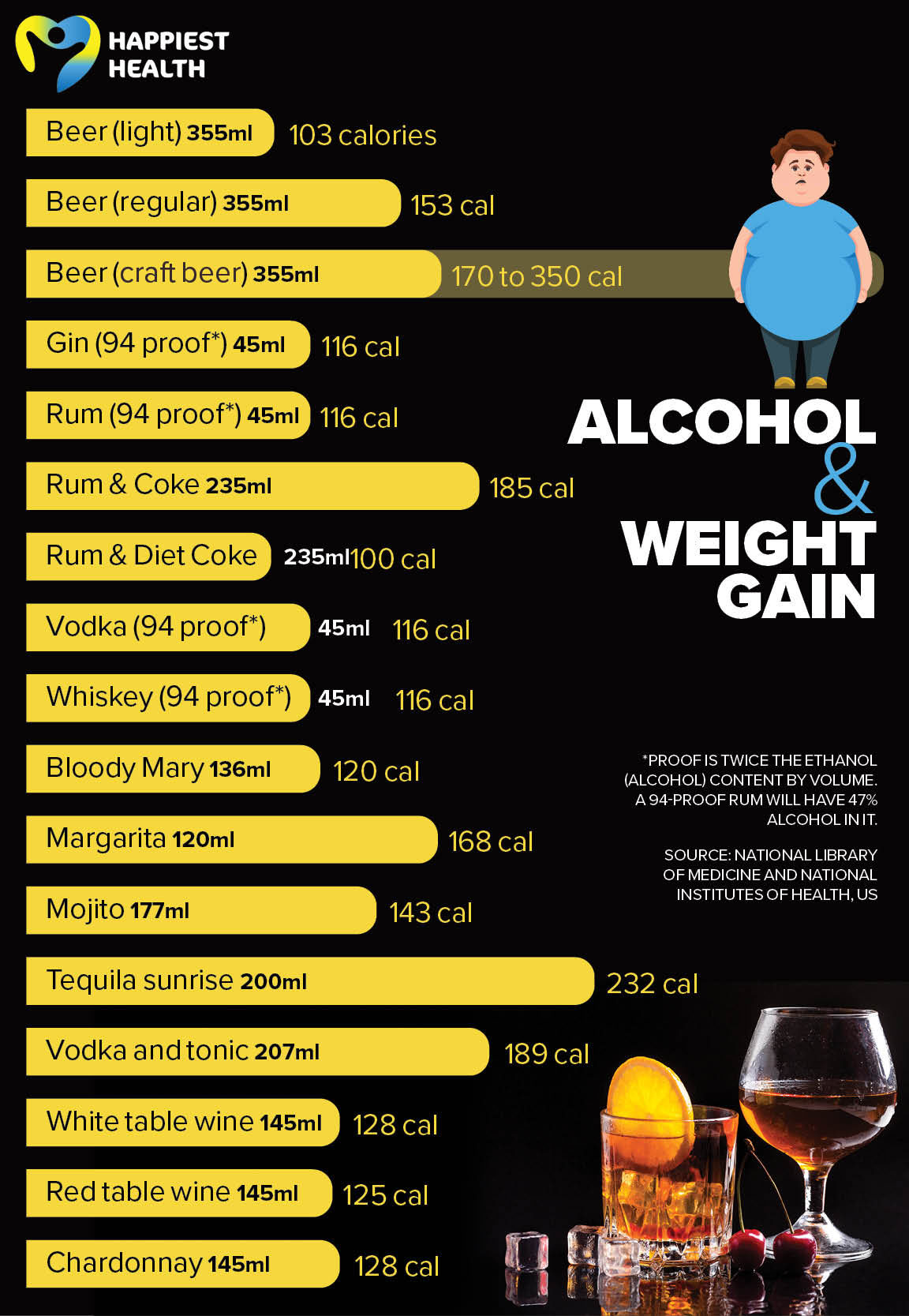
All variants of alcohol are calorie-dense and have negligible nutrition. No wonder recreational drinking is recognised as a major factor contributing to obesity on a global scale.
Experts say food and alcohol generally go hand in hand, resulting in excessive calorie intake. It has been estimated that a night out with booze and food could pile on at least 500 calories even in cases of moderate consumption.
READ MORE :
Weight loss, health on your mind? Try Thandav
Watch what you eat: trim down to avoid gout
How the extra kilos dull the brain
Why do people drink alcohol?
Most people drink alcohol for recreation — especially during social gatherings, professional meetings and get-togethers with friends and family. But Aditi Shankar, psychologist, Inspiron Psychological Wellbeing Centre, Bengaluru, says that some people develop emotional and physical dependence on alcohol due to:
- Impulsivity
- Need for approval or social desirability
- Using it as a coping mechanism for various emotional needs.
She adds that although people often tend to rely on alcohol when they feel mental distress, it actually alters the brain stimulus and often makes the person more impulsive. The byproducts of alcohol breakdown in the body affect the functioning of the brain and the central nervous system. Shankar also says that drinking alcohol could be habit forming and makes a person increasingly dependent on it.
Link between alcohol and weight gain
Bengaluru-based dietician and lifestyle consultant Vasundhara Agarwal says individuals end up gobbling extra calories in the form of unhealthy snacking (chips, fried and oily starters) and sugary drinks (like fruit juices), leading to weight gain. People also tend to eat more while drinking in the belief that that will help dilute the effects of alcohol.
Second, water intake is reduced significantly while a person drinks alcohol, leaving them dehydrated. Several studies also say that dehydration slows metabolism, which in turn causes weight gain.
Brahmanand D, a 23-year-old data scientist with a Bengaluru-based firm, tells Happiest Health that he earlier used to drink alcohol and eat without worrying if it would lead to weigh gain. “But not any more,” he says. “Now I make it a point to tightly control my food intake when drinking. I also always opt for healthier snacking options like peanuts and chicken starters.” Brahmanand also works out diligently to burn off any excess calories.
It has been shown that alcohol could lead to impaired fat metabolism. A recent research article based on the study of 103,048 South Korean men concluded that excess alcohol consumption increased the risk for obesity, hypertension and dyslipidemia (elevated cholesterol levels).
Alcohol and calories
According to a research article on the link between alcohol and obesity, one gram of alcohol pumps seven kilocalories into the body. A standard drink contains half an ounce (about 15ml) of pure alcohol — needing one hour for the body to metabolise.
There are variations in the definition of a standard drink but in the US it is generally considered to have 14gm of pure alcohol.

How alcohol affects the liver
Dr Shivaram HV, head of surgery & allied specialties and program director, bariatric & metabolic surgery, Aster CMI Hospital, Bengaluru, says that alcohol intake on a daily basis and in large quantities is toxic for liver. It leads to cirrhosis and eventually liver damage.
Liver plays an important role in the metabolisation of alcohol. It also has the unique ability to regenerate its damaged tissues with new ones. However, alcoholism diminishes this capacity over time and the tissue damage becomes irrevocable, leading to liver failure.
How to drink (but still maintain girth control)
- Avoid alcohol or drink in moderation: Dr Shivaram doesn’t recommend alcohol at all. But he says if an individual cannot shun alcohol completely then they should ensure they consume it only in moderation.
- Healthy snacking: Doctors say that protein-rich food (including salads, nuts, paneer, grilled chicken and fish) should be eaten as snacks at the drinks table. And people must avoid processed and oily food, which will help prevent the intake of excess calories while drinking.
- Drink water: Water contains no calories and has numerous benefits. People must opt for water instead of sugary aerated drinks to restrict their calorie intake, says dietician Agarwal. She adds that drinks must be spaced out with a couple of glasses of water. This will improve hydration and metabolism.
- Liver health screening: Dr Shivaram recommends an annual health screening of the liver — especially for the overweight, those diagnosed with type 2 diabetes and drinkers. Drinking and abdominal obesity are among the top reasons for alcoholic and non-alcoholic versions of fatty liver disease. The initial stages of fatty liver disease could be reversed and brought under control with dietary control and lifestyle modification.
Takeaways
Experts point out a direct link between excess alcohol intake and weight gain. Apart from obesity, excess drinking could also trigger adverse reactions leading to insulin resistance, type 2 diabetes, fatty liver and cardiovascular complications.

















